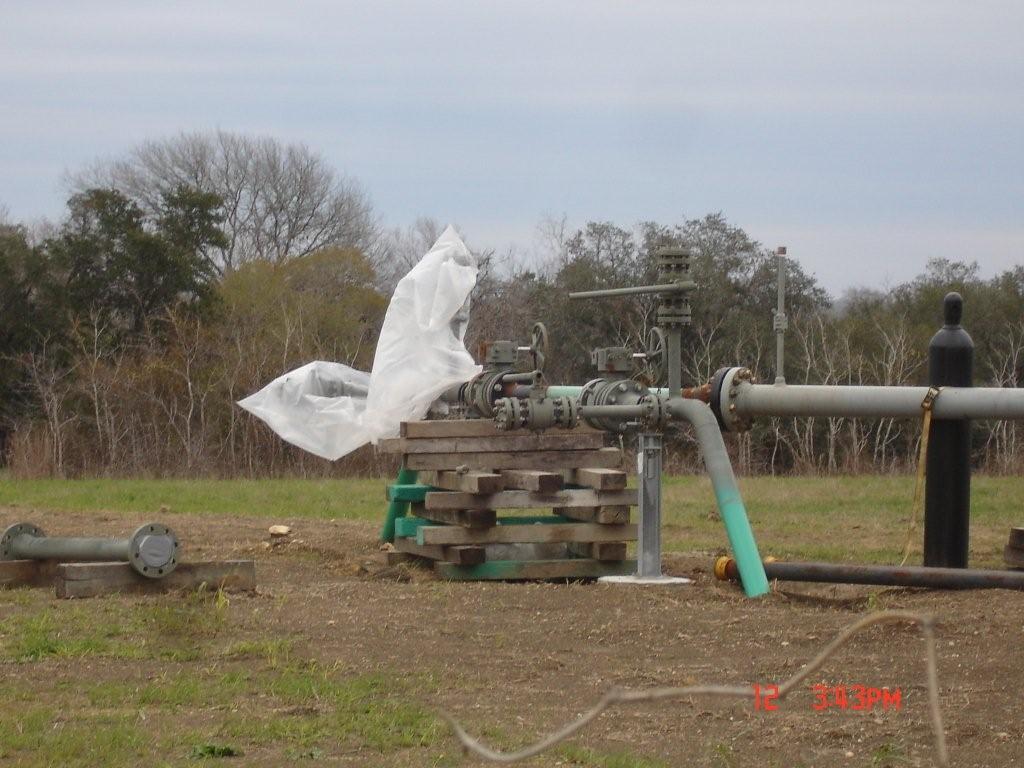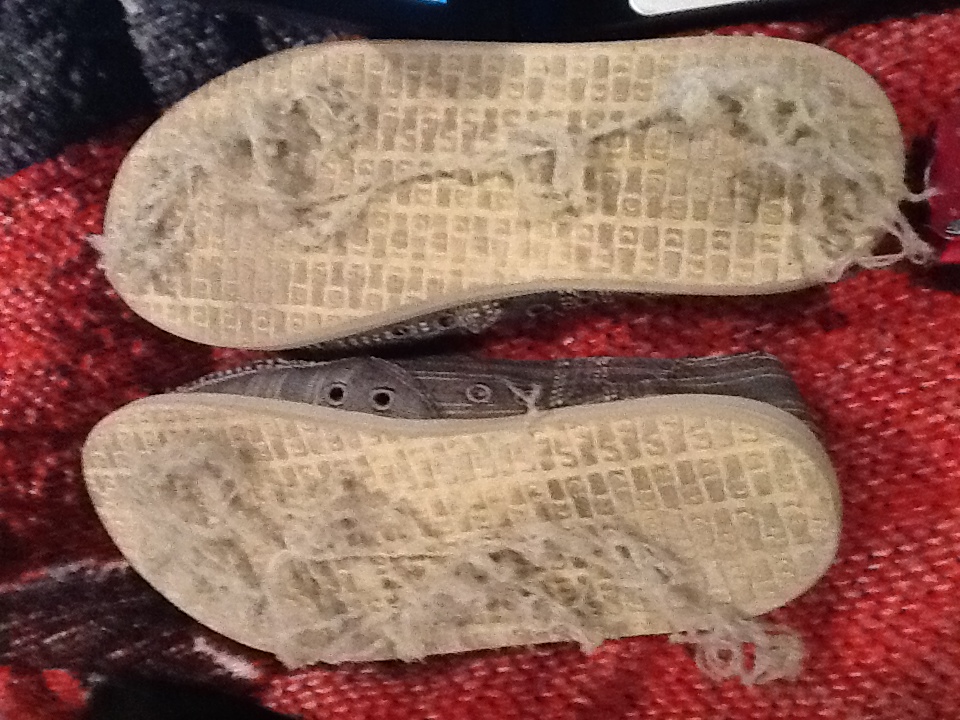
A friend sent these photos of an Eagle Ford Shale well undergoing a pressure test. She first noticed the situation two weeks ago. Yesterday she decided to stop on the side Hwy 77 south of La Grange to take pictures. When she got home, the rubber on the soles of her shoes was melted. Both times she noticed a very strong odor. Last night she experienced health effects from the fumes.
Maybe there is an issue with the casing.
UPDATE: From the comments, I am reminded that shoes have melted before.
About Sharon Wilson
Sharon Wilson is considered a leading citizen expert on the impacts of shale oil and gas extraction. She is the go-to person whether it’s top EPA officials from D.C., national and international news networks, or residents facing the shock of eminent domain and the devastating environmental effects of natural gas development in their backyards.
- Web |
- More Posts(5121)


Could have been one of the many acids used in fracking:
Hydrogen chloride (Hydrochloric acid)
Nitrilotriacetic acid
Sulfuric acid
Hydrogen fluoride (hydrofluoric acid)
No doubt frack chemicals can melt shoes. But what’s that stuff doing on the side of HWY 77?
spill, contamination etc.
See previous post. Ed says everything is just fine……..
If it were a spill, they should have cleaned it up and reported it.
That’s true. They should have but–in our experience–they rarely do. At any rate, standing on the side of the road doesn’t melt shoes. It just doesn’t, even in the hottest part of summer.
Unless your shoes are made of butter! DOA
Seriously people, isn’t this a business opportunity? Chemically resistant shoes ~ they would have to have a proprietary label, of course. It could be a real money maker especially if there were a great many styles to choose from for that happy, carefree, yet fashionable life in the neighborhood gas patch.
I’ve worked with toluene some years ago, and it never did this to our shoes. Yikes. Teflon is very chemical resistant, but also a little too slick to walk on. 😉
And, I bet the workers are not using respirators there.
This worker had melted boots: http://www.texassharon.com/2012/01/22/shale-gas-drilling-worker-blows-whistle-on-fracking/
Now they’ll likely ask that they not be required to pressure test wells.
Oh piddly, what’s a little melted shoe soles!! They’re doing us a favor!!. They probably only dump that scrumptious stuff there so we can get all that yucky mud and animal poop off the soles and, at the same time, roughen up the soles so they give us better traction. I bet they don’t even realize what a gift they’re giving us!! But don’t tell them, or they might charge us for the service!!! Wow, just thought about it, maybe the fumes are doing the same to your lungs, cleaning up all the accumulated junk from years of breathing pollution from “other” sources, certainly not their compressor stations. No siree, those folks in the fracking industry sure are good to us!!
Excuse me, but it’s time for my chemotherapy treatment, so I gotta go.
We have a winner!
Wonder what that first picture is? It’s not a wellhead.
I was just sent this:
Black, Foamy Water Worries Fracking Neighbors
http://youtu.be/eOMjBcnbuBI
What do pictures of hydrostatic pressure testing new gas lines have to do with fracking, fumes or casing? Please come back from outer space. None of that is even pictured.
You tell us, Katy. Why all the fumes? Why fluid everywhere? Why do shoes melt? Why are frack tanks there?
Why?
Why?
Why, Katy?
We would like to know. Please tell us if you know. If you only want to make fun of people who are worried, go away.
interesting that katy demands transparency when she works for the most secretive industry there is.
You mean, you don’t know what hydrostatic pressure testing of new gas lines has to do with fracking, fumes or casing? What is your planet, Janet?
Flo B
hydrostatic pressure testing is a critical component in verifying the integrity of the pipe, welds and valves that carry crude oil, produced waters, natural gas, and many other refined products. Thankfully it is a requirement. Most pipeline companies think it’s an unnecessary expense. Normally this testing reveals about 1 in 25 welds require cutting and rework. It only takes one to make devastation. An empty pipeline SHOULDNT have anything in it that would cause shoe melting. However frac tank companies are NOTORIUS for end dumping tanks in open fields and other areas which may just have been the area that this pipeline connection is at. That has almost a 100% probability of having chemicals in it that would melt shoes.